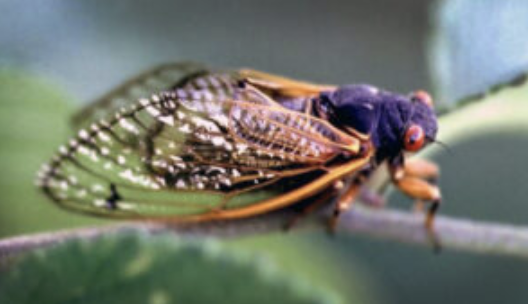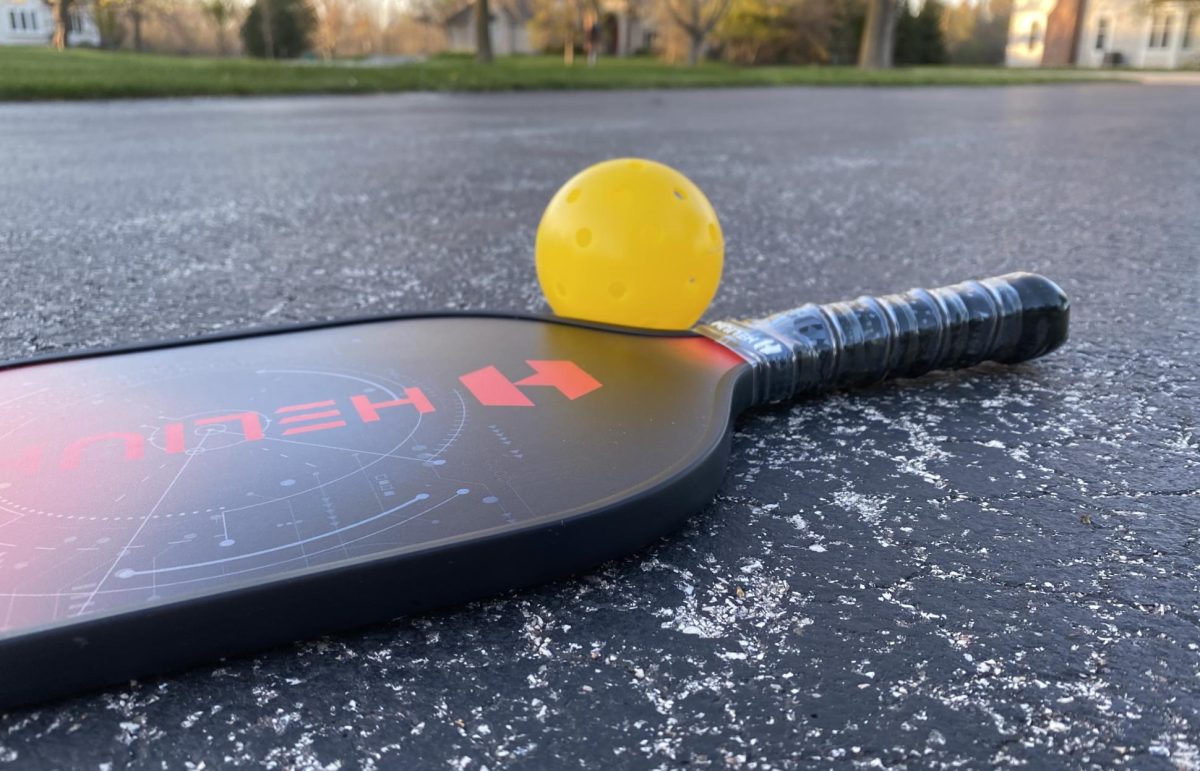The enchantment of a true summer afternoon isn’t complete without the radio-static hum of a cicada song. Emerging from the ground, cicada hatches represent the unofficial turn of spring’s erratic spouts of sun to summer’s unwavering heat. However, this summer’s cicada hatch isn’t going to highlight the summer aesthetic most outdoorsmen look forward to. With two hatch periods colliding in 2024, that of the 13-year larvae Brood XIII and17-year larvae Brood XVII, disturbances of overbearing cicada screeches and infiltrations of the unpleasant bug are set to sweep the nation.
Department of Natural Resources Forest Health Specialist Micheal Hillstrom notes the event’s main details in his DNR Forestry News article, focusing on the science that is behind both Wisconsin and the nation’s concerns.
“We see the large, non-periodical, dog-day cicadas with green wing veins in Wisconsin in late summer every year. But the smaller periodical cicadas with orange wing veins only emerge every 13 or 17 years. The nymphs are underground, feeding on roots for all those years between emergences. Adult periodicals only live a few weeks – long enough to mate and lay eggs to begin the cycle anew,” Hillstrom said.
Noting the loudest hatch to be that of 90 decibels from nineteen-year larvae Brood XIX, Hillstrom also notes the most impacted areas that Wisconsinites should anticipate cicadas from.
“Unfortunately, Brood XIX does not occur in Wisconsin. Central Illinois is the closest location to see those cicadas. But, for the first time since 1803 — when Thomas Jefferson was president — thirteen-year Brood XIX and seventeen-year Brood XIII cicadas will co-emerge in the millions. If you want to observe this spectacle, you can see the Brood XIII cicadas in southern Wisconsin,” Hillstrom said.
While others anticipate the event as a nuisance bordering national emergency, Schlitz Audubon Naturalists Aubrey Fuscaas and Lainey Cotteleer note that despite being a scientific anomaly, it’s not something Wisconsinites should worry about too much.
“It’s pretty rare to have both hatches at the same time, but it’s not going to be as loud here as it is the South,” Cotteleer said
Cotteleer also notes the effect on the environment outside of human impacts.
“What we’re also looking at is the effect on bird migration and forestry. We’ll have to wait and see if birds are going to trend more north or south depending on their food availability,” Cotteleer said.
Similar to Cotteleer, Fuscaas is more intrigued by the science and entomology of the event.
“Even though there are more reports in Georgia and Kentucky, we’ll still be able to hear louder cicada songs than normal. Cicadas have no harm to people except for their mating call, which is the sole purpose of their life – they spend a significant amount of years underground in their egg and larvae stage, and emerge for a week or so to reproduce,” Fuscaas said.
Like the naturalists, AP Biology teacher James Davies says it’s nothing too much to worry about, and may actually be a benefit for science education.
“Honestly, other than maybe the cicadas being even louder than they usually are, I don’t think there will be any effect on daily life. If anything it will be a positive effect because more of them means more people might actually see them and want to learn about them. My son loves bugs so he will be super excited. He finds cicada skins every year and one year found one that hadn’t molted yet and we watched it emerge from its skin,” Davies said.
Categories:
Rare cross of cicada hatches worsens noise concern for this summer

A periodical cicada sits on a branch after hatching.
1
0
More to Discover
About the Contributor

Rita Ferrero, Staffer
Rita Ferrero, a current senior at Homestead High School, is eager to pursue her interests in writing as a Co-Web Editor of the Highlander Publications. Aside from journalism, you’ll find her with friends, on the tennis courts or enjoying any time she can outdoors, especially with her dog, Tory. As a student, she coordinates Homestead’s Spanish Club and is a member of both the National Art Honors Society and Homestead’s art magazine, Soliloquy.







Keller • May 6, 2024 at 4:00 pm
Amazing to witness! It makes me sad to see counters in the stores of chemicals to eradicate these harmless creatures & hear people freaked out about them eating all their plants! 😟